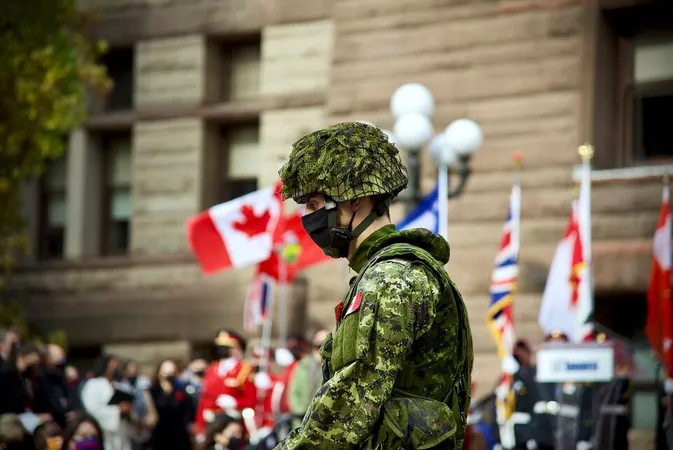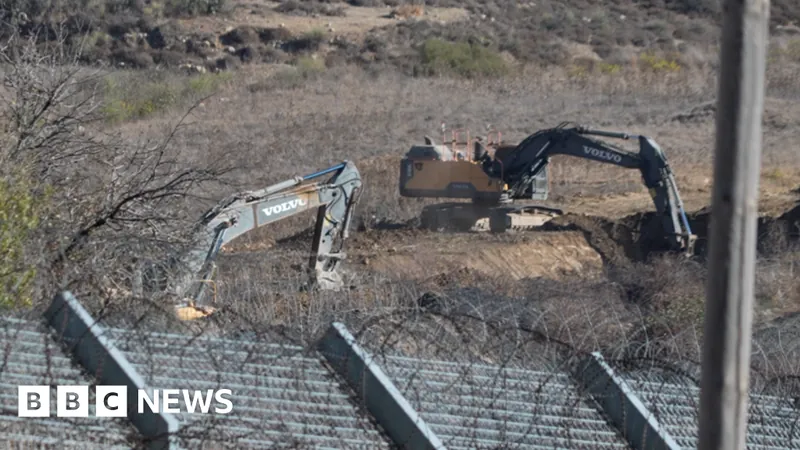
Federal Judge Dismisses Lawsuit Against Canadian Armed Forces Vaccine Mandate: What It Means for the Future!
2024-11-19
Author: Michael
Introduction
In a significant legal development, a federal judge has dismissed a lawsuit challenging the vaccine mandates imposed by the Canadian Armed Forces (CAF) during the COVID-19 pandemic. This ruling comes as a considerable setback for the 330 plaintiffs who sought $1 million in damages each, claiming violations of their rights under the Canadian Charter of Rights and Freedoms.
Background on the Vaccine Mandate
The vaccine mandate, enacted in 2021, required all CAF personnel to be fully vaccinated against COVID-19, although exemptions were permitted based on religious beliefs or medical advisories in accordance with the Canadian Human Rights Act. Consequences for non-compliance included administrative measures and potential dismissal from the CAF.
Details of the Ruling
Associate Judge Catherine Coughlan, in her ruling dated November 13, stated that the plaintiffs had vastly different personal circumstances. Notably, while some actively served, many either opted to leave the CAF voluntarily or were discharged. The disparities in individual situations undermined the collective claim presented in court.
Government's Response
The government of Canada, in response to the lawsuit filed in June 2023, moved to dismiss the case, labeling it as baseless and not supported by factual evidence. Government lawyers asserted that the lawsuit's claims of “unlawful acts” and “breach of public trust” lacked sufficient grounding. They described the language used in the plaintiffs' assertions as vexatious and irrelevant to the case’s legal merits.
Unusual Claims and Their Rejection
One particularly unusual point raised in the lawsuit involved claims of punishment related to vaccine compliance. Plaintiff Stephen Troy Chledowski, identifying as a "Pansexual Pagan," requested religious accommodation but presented no specific beliefs underpinning his objection. Another plaintiff, Frederic Villeneuve-Normand, alleged psychological and physical distress after facing harsh winter conditions, asserting that such suffering constituted a punishment for not being vaccinated. However, the judge noted that no evidence supported this claim.
Conclusion and Implications
Coughlan emphasized that many allegations presented were “bald assertions” devoid of factual substance, such as the accusations related to the handling of vaccination information. In considering the plaintiffs' arguments, the judge deemed that there was a failure to present material facts that would support their allegations regarding the breaches of the Charter.
With the dismissal, the plaintiffs have also been ordered to jointly pay Canada $5,040 in legal costs. The outcome marks a pivotal moment in the ongoing discussions about health mandates and personal rights within the military context. As vaccine mandates continue to stir public debate, this ruling may set a precedence for future legal actions regarding similar issues in Canada.
With the CAF's stance on mandatory vaccination clarified by the court, attention now turns to the broader implications for military policy and individual rights within the forces. As legal battles like this unfold, one wonders: how will this shape the future relationship between the government and its service members?









 Brasil (PT)
Brasil (PT)
 Canada (EN)
Canada (EN)
 Chile (ES)
Chile (ES)
 España (ES)
España (ES)
 France (FR)
France (FR)
 Hong Kong (EN)
Hong Kong (EN)
 Italia (IT)
Italia (IT)
 日本 (JA)
日本 (JA)
 Magyarország (HU)
Magyarország (HU)
 Norge (NO)
Norge (NO)
 Polska (PL)
Polska (PL)
 Schweiz (DE)
Schweiz (DE)
 Singapore (EN)
Singapore (EN)
 Sverige (SV)
Sverige (SV)
 Suomi (FI)
Suomi (FI)
 Türkiye (TR)
Türkiye (TR)